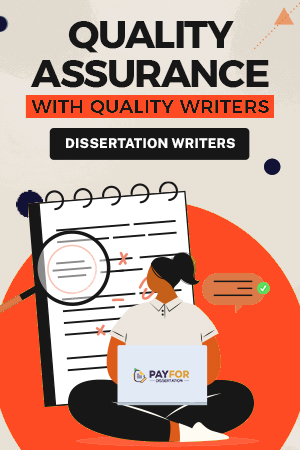
How Long Does It Take to Write a Dissertation
Writing a dissertation is not a piece of cake, let’s face it. Whether it’s at the doctoral level or even the master’s level, getting it all down takes a long time. There are moments when you’ll feel stuck or completely overwhelmed.
You will want to quit, at least a few times, and that's normal. It's like climbing up a mountain that never ends, page after page, with no endpoint in view. The pressure is intense.
But listen: you're not by yourself, and you don't have to do it alone. So, how long is it going to take to write a dissertation? And what can you do to streamline the process?
Let's break it all down.
Understanding the Dissertation Writing Timeline
A dissertation typically takes around 6 months to 2 years to finish.
Yes, it's a massive timeframe. But the reality is that there isn't one answer to suit all. It simply depends upon the course, subject, and the lifestyle you live outside university.
A ballpark figure is possibly as follows:
- Master's dissertation: 3 to 6 months
- PhD dissertation: 1 to 2 years, occasionally even more!
Some students commit entirely to writing; others juggle time with jobs, families, or illnesses. Each has a unique experience, and the reason that a few businesses are born such as PayForDissertations.uk.
Factors That Affect the Time to Complete a Dissertation
It can extend (or shorten) the dissertation timeframe under one of these conditions. Let's go through the key ones. Some students even pay for dissertation assistance when they're up against it. It's a good idea if you're tight on time or require specialist advice.
Services such as this can keep you on schedule. They take the stress off and save you precious hours. A dissertation is difficult to write; seeking assistance is just being realistic.
Your Research Topic: Easy topics go quicker. Complex ones take a while. Your Advisor's Opinion: Quick turnaround? Good. Long wait periods? Not ideal.
Your Style of Writing: Writing is a success if it's easy for you. If not, don't quit; perfection can be found through practice or a professional.
Life Stuff: Mental health, work, and kids exist and count.
Data Access: Students have to wait weeks and weeks before they can be permitted to engage in interviews or surveys.
You can see from above that the speed of typing is not the sole parameter to influence your timeline.
Typical Stages of Dissertation Writing and Their Duration
Dividing one's work is beneficial. It makes the whole dissertation not so overwhelming. Here are the standard steps in the process, how long each step would take on average, and what one can expect.
Proposal Writing (2–4 weeks)
This is where you start. You'll choose your topic, do some initial research, and create an authentic outline of what you want to study. At this stage, your objective is to map out your central question and how you plan to look into it.
Having received the go-ahead from your supervisor, you can now go on. Don't hurry this, you get your proposal right, you set the correct foundations for the rest.
Research and Data Collection (1–3 months)
Now it is time to get into the books, journals, and whatever else is related to your topic. You might also need to create questionnaires, interview individuals, or conduct experiments.
This can take a long time, especially if you are having trouble getting data. Get organized. Take notes, have files correctly labeled, and trace your sources, and you will save yourself stress later on when writing.
Writing Your Chapters (2–4 months)
This is the heart of the dissertation. You’ll be drafting sections like the introduction, literature review, methodology, results, discussion, and conclusion. It’s a lot, but don’t let that scare you.
Begin with rough drafts, just write out your ideas. Don't bother editing yet. Write a little bit each day. The secret is to keep moving along, even if it's a few hundred words at a time.
Corrections and Edits (1–2 months)
Once your chapters are written, the real magic happens in editing. You’ll need to revise your arguments, clean up grammar, and fine-tune your formatting. Read everything aloud if it helps spot awkward sentences.
Ask for feedback from your advisor or a trusted peer. Sometimes, fresh eyes catch things you’ve completely missed. This stage is all about making your work shine.
Final Submission (2–3 weeks)
You're almost done. This is when you take absolutely every detail apart and put it back together again with a fine-tooth comb. Double-check the spacing, page numbers, citations, and formatting.
Ensure you've got every submission guideline to the letter. Save your complete copy in several locations, cloud, USB, email, just in case. And then breathe. You did it! After all that work, clicking "submit" is a big deal. Toast it, you've earned it.
Tips to Speed Up Your Dissertation Writing Process
Do you need an outside push? The secrets are as follows:
- Creating a strategy: Make use of a Gantt chart or calendar. Draw out each step.
- Write each day: Writing just 300–500 words a day will have a cumulative effect. Little steps make a big difference.
- Just write it; don't strive for perfection. Later, polish it.
- Make use of devices: Grammarly, Scrivener, and Zotero are time-savers.
- Reduce the number of distractions: Try the Pomodoro technique, turn off your phone, and select "Do Not Disturb."
- Seek assistance: Don't go it alone, friends, your advisors, or the experts at PayForDissertations.uk.
- Commence with the easiest parts: So you're not sure where to begin? First, write the methods section. perhaps possibly the end. Go ahead and do it.
How Much Time Should Be Spent on Research and Planning?
Plan now to save time weeks from now. Take a couple of weeks reading, outlining, and creating a roadmap. Buy yourself a stack of sticky notes. Graph out your outline. Get your references in early.
Use folders, color codes, or digital aids, whatever keeps you sane. This is the slow part, but it makes everything faster later on. Research is key. But don't trick yourself into reading indefinitely without writing.
That's a familiar pitfall. Keep it balanced. Read enough to know your subject, then begin committing words to the page. You can always clean it up as you go.
Writing the Literature Review: How Long Does It Take?
Ah, the lit review. It’s kind of that friend who stays way beyond their welcome. Expect this one to take 1–3 weeks, depending on how much you’ve already read. It can be slow at first, but it builds momentum.
Start by defining your themes. Spot the gaps in the research. Analyse, don’t just summarise. Show how different studies connect or disagree. That’s what makes your review strong. Tip: group articles by topic, not by author. It keeps your structure clear and makes writing much easier. A little organisation here goes a long way later.
Editing and Proofreading: The Final Stretch
Take your time with this. Take your time.
- Allow a minimum of two to four weeks for proofreading and editing.
- That's plenty of time to correct mistakes, review citations, refine formatting, and even add any missing information.
- Additionally, you should make sure that everything flows properly and smooth out any rough words.
- Read aloud from your work. You'd be shocked at how helpful that is.
- Basic problems can be detected by tools such as Grammarly. But it's okay to seek help if your brain is completely fried.
Leave the editing to PayForDissertations.uk. What you missed will be caught by them. You will undoubtedly be appreciative in the future.
Balancing Dissertation Writing with Other Commitments
Most students aren’t just writing a dissertation, they’re juggling ten other things at the same time. Jobs, classes, family stuff, social life, it’s a lot. So, how do you balance it all without burning out?
Set a realistic stretch goal
Don’t aim to write 5,000 words in one sitting. That’s not sustainable. Try for 300. If you hit more, great. If not, that’s okay too.
Use a calendar
Block out time for writing, work, rest, and fun. Seeing it all laid out helps you stay consistent without feeling overwhelmed. Even 30 focused minutes can make a difference.
Be kind to yourself
Missed a writing session? It happens. Don’t beat yourself up. Just show up again tomorrow. Progress over perfection, always.
Get help when needed
Whether it’s emotional support from a friend or academic help from pros, you don’t have to do it all alone. Asking for help is smart, not weak.
Remember, you’re not a robot. You’re a human being. And humans need breaks, deep breaths, and the occasional nap. Don’t forget that.
Final Thoughts
Thus, what is the duration required to compose a dissertation?
It depends.
One thing matters, though: keep moving forward, whether you're moving quickly or slowly, focused or distracted.
Every paragraph, every edit, every late night adds up. There will come a day when you can look back and say, "I did that."
Additionally, the staff at PayForDissertations.uk is only a click away if you ever need help.
You're capable!
